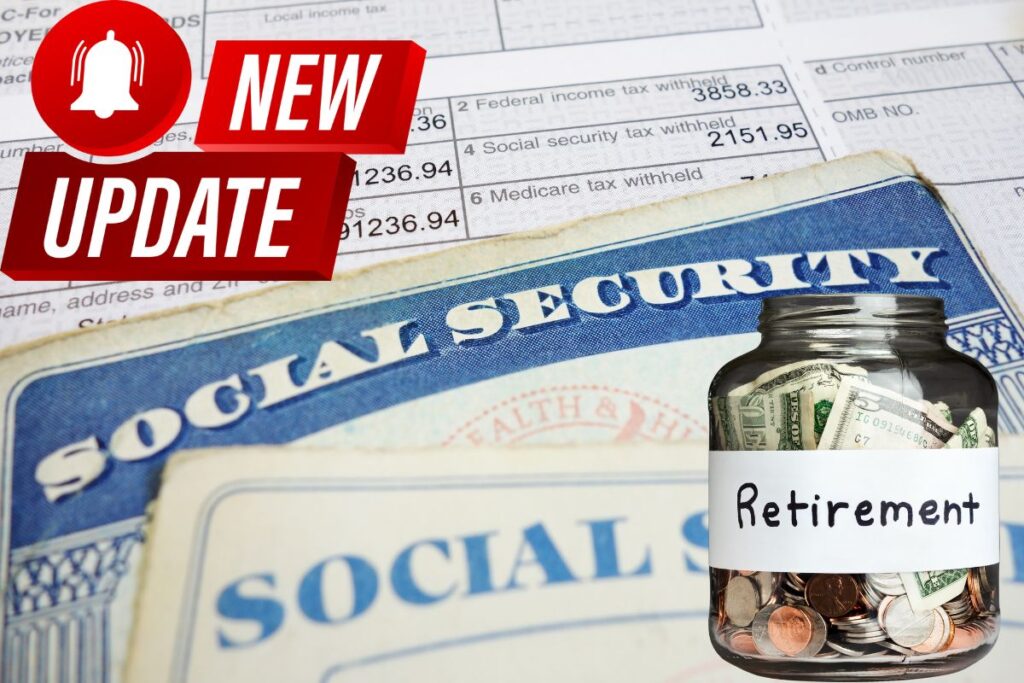In the United States, the customary Retirement at 67 years of age is vanishing. Because of better healthcare and longer life expectancies, more Americans are opting to continue working well into their 70s and beyond. The number of people over 70 who are still employed has actually climbed by 61% in the last ten years, with 168,000 women and over 280,000 males. Social interaction, intellectual stimulation, and financial necessity are among the key factors driving this trend.

Many need to supplement their income, while others just love their jobs and cannot contemplate retiring. Consequently, the idea of retirement is changing, with many people rethinking what it means to be “retired.” Candidates must first fulfil the SSA Benefits Eligibility 2026 to claim their pension as and when they reach the desired retirement age. Refer to the article to get clarity about the age of retirement in the US.

Retirement at 67? Not Anymore
The conventional Retirement at 67 is no longer fixed in the United States. Due to reasons including intellectual stimulation, social contact, and financial necessity, many Americans are opting to continue working well into their 70s. People are living longer, healthier lives and can continue working due to increased healthcare and rising life expectancy. The number of people over 70 who work has actually increased dramatically, and many of them love the cerebral and physical stimulation that comes with the job.

Some people find that working gives them a sense of fulfilment and purpose, which makes retirement seem undesirable. Others must keep working to preserve health insurance or boost their income. Another factor has been the COVID-19 pandemic, which has caused many older workers to postpone retirement because of financial uncertainties. As a result, many people are rethinking what it means to be “retired,” and the idea of retirement is changing.
- $4,152 Social Security Disability Benefit 2026
- Social Security Garnishment Starting 2026
- Social Security Changes For 2026
- How Working Affects Your Social Security Benefits 2026
Also Read Centrelink Advance Payment November 2026: Check Amount & Deposit Schedule
Centrelink Advance Payment November 2026: Check Amount & Deposit Schedule
Social Security Full Retirement Age 2026
| About | Social Security Full Retirement Age 2026 |
| Country | USA |
| Governing Body | Government of the USA |
| Benefits | SSA |
| Retirement Age Eligibility 2026 | Refer to the article |
| Category | Finance |
| Official Website | www.ssa.gov |
Eligibility Criteria For SSA Benefits
Those who meet the Retirement Age Eligibility 2026 conditions are eligible for monthly benefits. The SSA provides tax-funded benefits to the following groups:

• Senior citizens.
• People with disabilities.

• The dependents of the recipients;
• The surviving family members of deceased employees.
The US Standard FRA: What is it?
It has been proposed that many Americans would lose a substantial portion of their benefits if the Social Security full retirement age were raised from 67 to 69.
| Full Retirement Age | Year of Birth |
| 66 Years | 1943 to 1954 |
| 66 and 2 Months | 1955 |
| 66 and 4 Months | 1956 |
| 66 and 6 Months | 1957 |
| 66 and 8 Months | 1958 |
| 66 and 10 Months | 1959 |
| 67 Years | 1960 and later |
At what age are the majority of Americans retiring?
The traditional retirement age of 65 is no longer the norm in the US. According to recent data, the average retirement age is 62 for women and 65 for men.
- Under 55: 13% of retirees stopped working
- 55-59: 20% of retirees stopped working
- 60-61: 9% of retirees stopped working
- 62-64: 9% of retirees stopped working
- 65: 13% of retirees stopped working
- 66-69: 13% of retirees stopped working
- 70 or older/never retire: 6% of retirees stopped working
Unexpectedly, 13% of workers have no plans to retire at all, while 34% intend to do so after the age of 65. Just 29% are hopeful of retiring before the age of 65, and only 23% believe they would do so at that age.
Why More People Are Working Into Their 70s?
People are continuing to work beyond their 70s for some reasons, such as:
- Financial necessity: Many people must keep health insurance or augment their income.
- Social interaction: A sense of community and connection is fostered by work.
- A sense of purpose: Work provides people with a cause to be inspired and content.
- Intellectual stimulation: Engaging work keeps minds busy and sharp.
- Better healthcare: People can now live longer, healthier lives thanks to medical and healthcare advancements.
- Shifting perspectives: Retirement is no longer viewed as a fixed endpoint but rather as a gateway to new options.
Disclaimer: Retirement at 67?
The traditional retirement age of 67 is still applicable for those born in 1960 or later, but there’s ongoing debate about potentially raising it to 70 to offset Social Security funding gaps. In the US, the full retirement age (FRA) has been increasing gradually since 1983, and for those born in 1960 or later, it’s now 67.
- Current Retirement Age: 67 for those born in 1960 or later.
- Potential Change: Some policymakers propose raising the retirement age to 70.
- Impact: Those turning 65 in 2026 will need to wait until 67 to receive full benefits.
- Early Retirement: Claiming benefits at 62 results in up to a 30% reduction.
- Delayed Retirement: Waiting until 70 increases benefits by around 8% per year
The Social Security Administration (SSA) hasn’t announced any official changes to the retirement age, but experts believe future adjustments are possible due to funding concerns.
FAQS On Retirement at 67? Not Anymore
Is 67 still the retirement age?
Yes, for those born in 1960 or later.
Will it change?
Possibly, some propose raising it to 70 due to funding concerns.
Can I retire earlier?
Yes, at 62, but benefits are reduced up to 30%.


